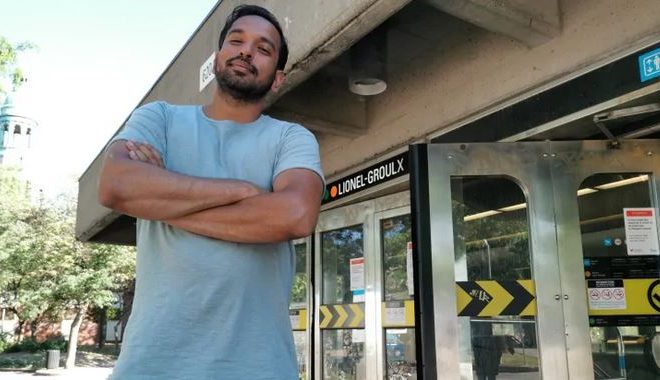Why astronauts are wearing this Montreal company’s smart clothing

The founders of Montreal-based Carré Technologies Inc. set out to use artificial intelligence to improve health care for an aging population. The journey has taken a few unexpected turns, including a foray into cutting-edge wearable technology and even into space.
“When we started the company, it was to automate data processing and to see how we could do personalized medicine using AI algorithms,” says Jean-François Roy, who created the company in 2006 with Pierre-Alexandre Fournier.
The founders believed that AI could offer some relief to a stretched health care system. For example, monitoring patients at home would free up resources and provide a better picture of a person’s health.
“It wouldn’t be possible to monitor all patients at the same time, but using AI, it is possible,” says Mr. Roy, the company’s chief technology officer.
“We could save a lot of time, we could prevent diseases, and we could keep the people at home for a longer time,” adds Mr. Fournier, the company’s chief executive officer.
The idea was to develop non-invasive sensors that would remotely monitor health metrics such as cardiac and respiratory activity. It would allow patients and their health care providers to measure these biometric indicators outside of the hospital, freeing up precious health care resources and staff. It would also give a broader view of a patient’s biometrics in their normal environment, such as in their home or driving, to mix it up.
“It’s much more interesting to look at when you walk in the street, for example, than when you’re watching TV, sitting on the couch,” Mr. Fournier says.
Traditionally, electrocardiogram and other sensors are strapped to a patient and hooked up to obtrusive – and expensive – equipment in a clinical setting.
“We thought, well, this is not natural. It should be as easy as getting dressed in the morning; it should be part of the things you already carry with you,” he says.
That’s when it became a garment – and the Hexoskin and Astroskin smart clothing brands were born.
By 2013, the founders released the first version of their Hexoskin smart shirt equipped with lightweight sensors to monitor primarily for cardiac and respiratory activity.
Unfortunately, Hexoskin may have been ready, but the health care industry wasn’t.
“We decided to launch it in a way that was open, meaning anybody could use it to collect information and export data, and then to see who would adopt it,” Mr. Fournier says.
Among the earliest adopters were clinical researchers worldwide, who flocked to Hexoskin to collect data for more than 120 scientific papers and counting.
The form-fitting sleeveless tank top-style shirt, which has a built-in bra for women, is used in a range of research in areas such as cardiology, behavioural psychology, sleep patterns and physical conditioning, to name a few. The sensors weigh less than 90 grams and the data are synced to local and remote servers, which allows real-time monitoring by the person wearing it and remote health data management and analysis.
In 2011, recognizing that the health care system would need to catch up, Carré Technologies put in a bid on a request for proposals from the Canadian Space Agency. Today, its Astroskin platform is worn by astronauts on the International Space Station (ISS). It will also be worn aboard the first commercial space flight expected next year by Virgin Galactic, the space-tourism company whose CEO Richard Branson recently made his inaugural trip.
Built on the same principle as Hexoskin, the Astroskin contains substantially more sensors and is designed for prolonged remote use.
Kellie Gerardi, a bioastronautics researcher with the International Institute of Astronautical Sciences, will wear Astroskin on that suborbital space flight. The suit will monitor the biological effects of the launch, weightlessness, re-entry and landing on space-flight participants.
“I’ll also be able to see my stats in real-time, which is information I can use to adjust my behaviour,” Ms. Gerardi says.
She tested the Astroskin in 2018 during parabolic flight campaigns with the National Research Council of Canada, right before the experiment made its way to the ISS. During her flight next year, the Astroskin will help track the effects of space flight on astronauts.
“My space flight will be the first time we’ll be able to collect data during launch, re-entry, and landing though, so I’m excited to contribute to that novel data collection,” she says.
Carré Technologies has grown to 30 employees today, not including the network of researchers, university research and development partners, supply chain and distribution partners around the world. Its clients include defence and aerospace agencies, such as the U.S. Navy medicine corps, the Australian Army, Royal Canadian Mounted Police, the Canadian Space Agency and NASA, in addition to hundreds of health researchers and professionals in more than 15 countries.









